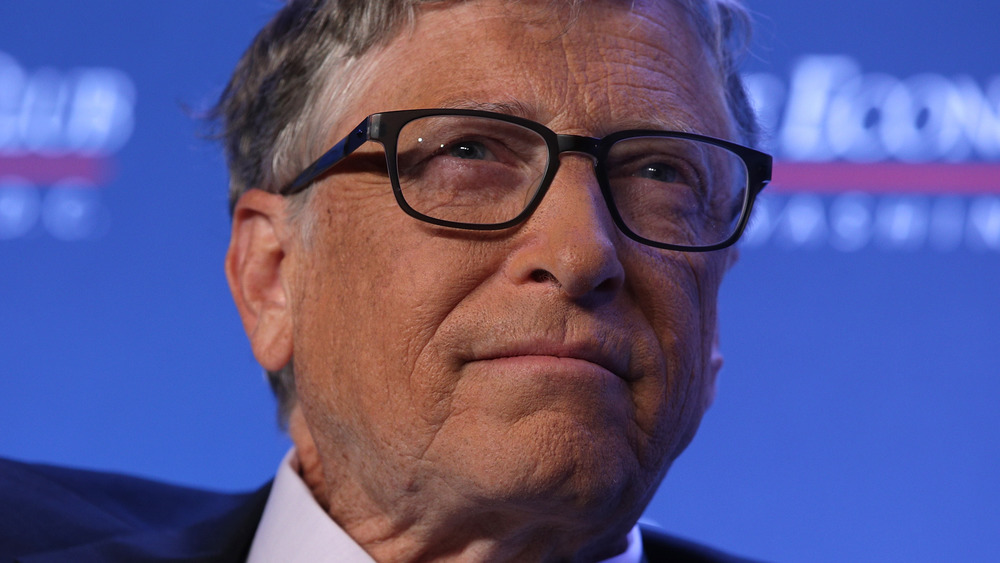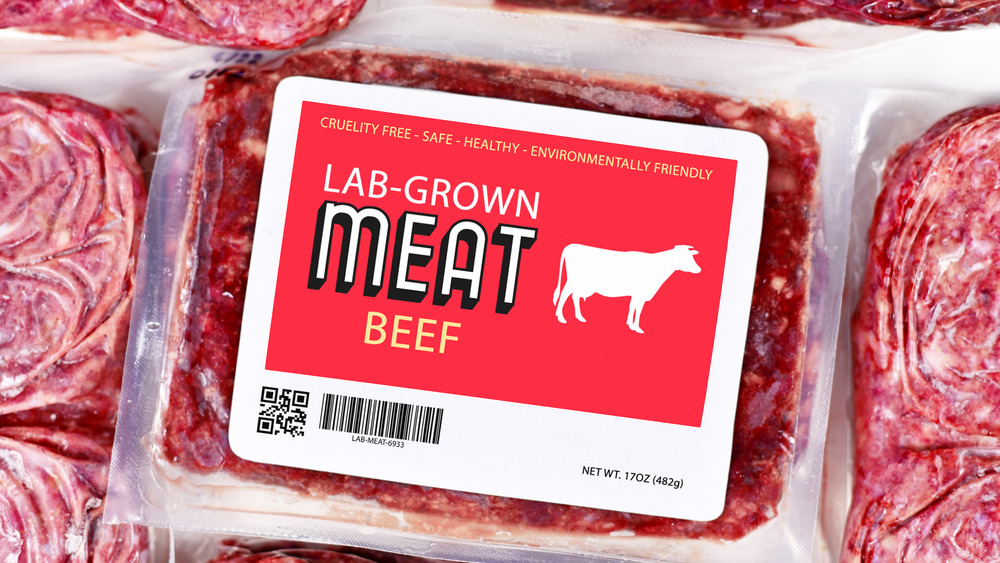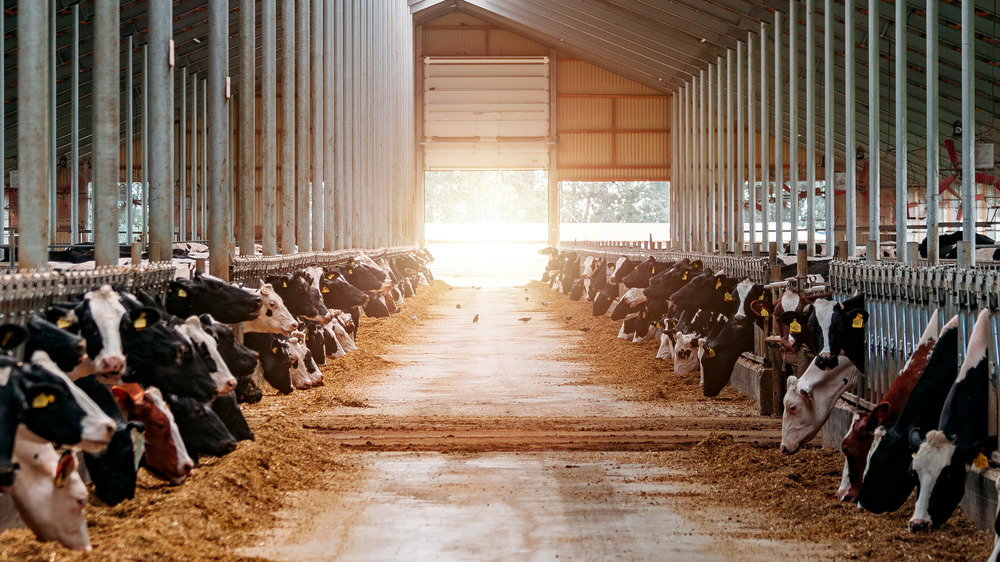Why Bill Gates Thinks People Should Only Be Eating Synthetic Beef
Bill Gates, the co-founder of Microsoft and co-chair of the Bill and Melinda Gates Foundation, is now trying to solve a new problem: reducing global greenhouse gas emissions to help stop climate change. Gates has said he remains optimistic, and though he readily admits there are significant political and policy hurdles, he thinks there's one thing the United States could start addressing today. It starts with cutting out meat, which is one of the largest contributors to greenhouse gas emissions worldwide (via Delish).
Gates recently explained to MIT Technology Review how hard it is to make the meat industry eco-friendly. "In terms of livestock, it's very difficult. There are all the things where they feed them different food, like there's this one compound that gives you a 20 percent reduction [in methane emissions]. But sadly, those bacteria [in their digestive system that produce methane] are a necessary part of breaking down the grass," Gates said.
What's the alternative for a nation of meat-eaters? "I'm afraid the synthetic [protein alternatives like plant-based burgers] will be required for at least the beef thing," Gates explained. However, Bill Gates knows giving up meat will be a hard message to send to the public. "But you're right that saying to people, 'You can't have cows anymore' — talk about a politically unpopular approach to things."
Gates wants you to give synthetic meat a chance
Bill Gates thinks this swap to synthetic meats should start right here in the US. Gates went on to address the disparities in global meat production, saying for "poor countries, we'll have to use animal genetics to dramatically raise the amount of beef per emissions for them. Weirdly, the US livestock, because they're so productive, the emissions per pound of beef are dramatically less than emissions per pound in Africa [...] So no, I don't think the poorest 80 countries will be eating synthetic meat."
Gates is a big supporter of environmentally sustainable meat substitutes and is a major investor in Memphis Meats, a lab-grown meat company, per Futurism. Unlike other plant-based meat-alternative companies like Beyond Meat and Impossible Foods — in which Gates also invests — Memphis Meats uses muscle tissue that is synthetically manufactured in a laboratory environment, without using live animals.
Raising livestock for meat is one of the most environmentally destructive things people do. According to a study published in Procedia Food Science, "the livestock sector is one of the most significant contributors to urgent environmental problems," per Science Direct. Animal agriculture accounts for almost 51 percent of global greenhouse gas emissions worldwide, with major environmental effects including "pollution through fossil fuel usage, and water and land consumption," as well as through "feed and fertilizers ... fuels, pesticides, growth substrates, pharmaceuticals, machinery, buildings and other capital goods."
Beef production releases the highest amount of greenhouse gases
According to The Smithsonian, beef is the worst offender. Raising cattle for beef production "requires 28 times more land, six times more fertilizer and 11 times more water compared to [...] other food sources," which "adds up to about five times more greenhouse gas emissions" than other animal protein sources, the magazine reported. While eliminating all animal-sourced meat would significantly reduce harmful emissions around the globe, cutting out beef could be a critical first step.
"I do think all rich countries should move to 100 percent synthetic beef," Gates told MIT Technology Review. "You can get used to the taste difference, and the claim is they're going to make it taste even better over time. Eventually, that green premium is modest enough that you can sort of change the [behavior of] people or use regulation to totally shift the demand. So for meat in the middle-income-and-above countries, I do think it's possible."


